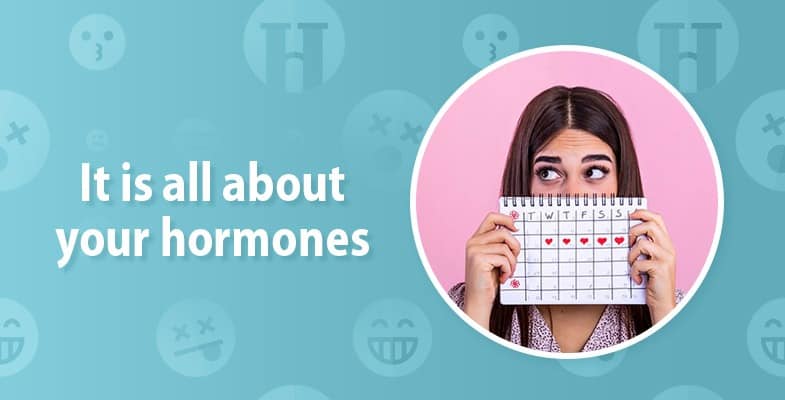
As women, we all go through different life stages that bring with them their own sets of complications, a large number of them related to our physical and mental health and well-being. Every year on International Women’s Day, the focus of the world turns on the fairer sex, and all around us we start hearing talk about gender equality and woman power. We are recognised as ‘achievers’ in various forums, showered with gifts and awards. While all of this makes us feel special and cared for, it is important to remember that a woman’s health is not about a day in a year, it is about a lifetime.
Puberty
To understand the complexities of a woman’s health status, it is important to understand the stages in a woman’s life. The first stage begins as she steps from childhood into Puberty. With puberty come the periods – the first indication of the hormonal changes taking place in a woman’s body. Beginning of menstruation is a big change in a woman’s life cycle, as she struggles to make a host of physical and mental adjustments. The release of the hormone Oestrogen in the ovaries are responsible for the sexual development that happens at this stage of life. The hormonal changes often have other manifestations including:
- Unexplained mood swings
- Low self esteem
- Aggression
- Depression
- Sprouting of Acne
- Excess hair growth on the body
- Sudden weight gain
Menstruation may also sometimes bring with it additional woes like irregular and/or painful periods, heavy bleeding. If the discomfort becomes difficult to manage, then it is advisable to visit a doctor and go for check-ups recommended to rule out certain medical conditions like ovarian cysts or polycystic ovaries – a condition caused by hormonal imbalance.
Hormonal imbalance is also often responsible for infertilityin women of child bearing age, as it can result in disorders like PCOS or anovulation (a condition where the ovaries do not ovulate as required).
Pregnancy
The second stage in a woman’s life arrives when she conceives. The hormonal changes that she experiences during this period can again bring about bouts of depression and severe mood swings. The hormonal changes are essential for the development of the foetus, but in the mother, it can cause complications like:
- Morning sickness
- Blurry vision
- Disturbed sleep
- Back pain
- Loss of sensations of taste or smell
Some women may experience hormonal imbalance that can cause more serious complications like gestational diabetes, preeclampsia, even miscarriage if not addressed in time. During the postpartum period, a woman’s body again undergoes changes as the hormone levels go back to normal. A new mother can experience a plethora of emotions from extreme happiness to complete exhaustion or even depression. As your body heals from the trauma of childbirth, your mind too struggles to come to terms with a new role and new responsibilities. The support of your partner and family is extremely important during this period. If, however, you experience chronic depression and have thoughts of harming yourself, you must consult your doctor as you could be suffering from a clinical condition called post-partum depression.
Menopause
The third main stage in a woman’s life occurs around the age of 45-50, when she goes through menopause. This is when her menstrual cycle stops. Preceding this some woman may experience a period of various discomforts including:
- Irregular periods
- Hot flashes
- Vaginal dryness
- Night sweats
- Sleep problems
- Mood swings
- Weight gain
It is important to stay in touch with your doctor during this period. You may need some medical interventions like hormone replacement therapy if your symptoms are severe and difficult to manage. Your doctor may recommend some health screening tests post menopause, as this is the time when a woman becomes more susceptible to medical conditions like osteoporosis, heart disease, thyroid disorders, and sleep disorders.
It is important to understand that hormonal changes during the different stages in a woman’s life are normal, hormonal imbalances, however, are not and need to be addressed. Do visit a doctorif you experience any symptoms that suggest an imbalance, as it can have long-term consequences on your physical as well as mental health.


